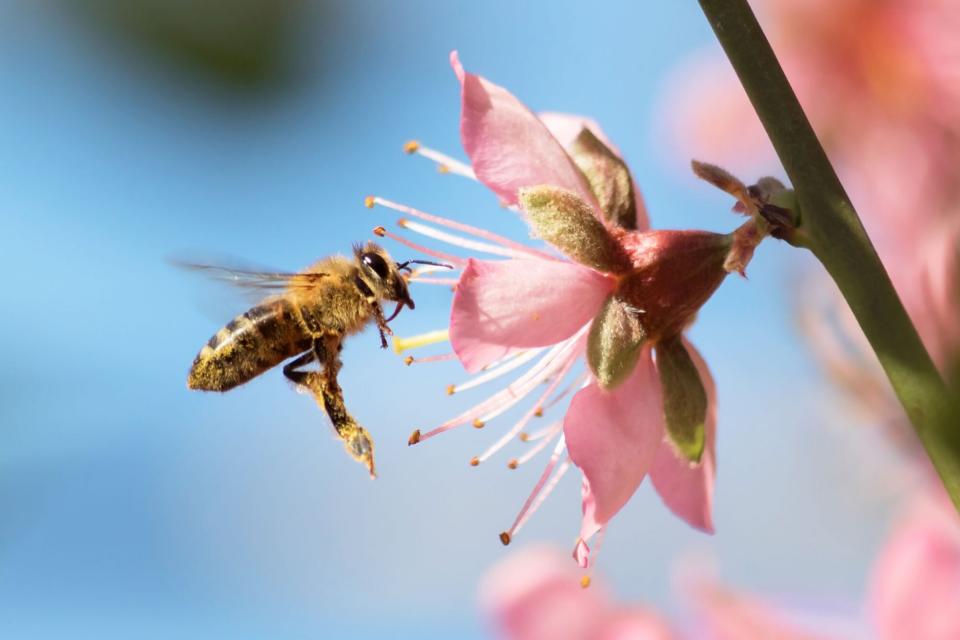A Researcher Created a New Vaccine That Effectively Protects Bees from Pesticides
Just like sunlight and a solid watering regimen, bees help the plants in our gardens thrive. Unfortunately, though, these pollinators can end up dying from harmful chemicals used to prevent other pests from getting to the plants. Now, thanks to a James Webb, a Cornell University student, there could be a solution to protect bees moving forward, according to study findings published in the Nature journal.

Sumiko Scott / Getty Images
Webb created a pollen-sized micro-particle that featured a compound to neutralize one of the most toxic pesticides: malathion. The researcher then safely tested this on bees. The result? One-hundred percent of the insects survived after feeding on the pesticide compound. None of the other bees in the experiment lived otherwise when exposed to the toxic chemicals.
Related: How to Create a Bee-Friendly Garden
The vaccine is officially called "Beemunnity." Beekeepers can now use this to prevent bee deaths with the help of malathion. Essentially, Webb noted that the compound goes through the insects' digestive system and then the malathion will break down before it gets to the brain.
While this vaccine works for one of the most common toxic chemicals in agriculture pesticides, Webb is working to create more to protect as many bees as possible. "So far we have not found one pesticide which cannot be captured by the technology," Webb explained. "I always thought there was a lot of research going into seeing if bees were dying, and the extent to which bees were dying, but not really many solutions," Webb told Adele Peters of Fast Company.

